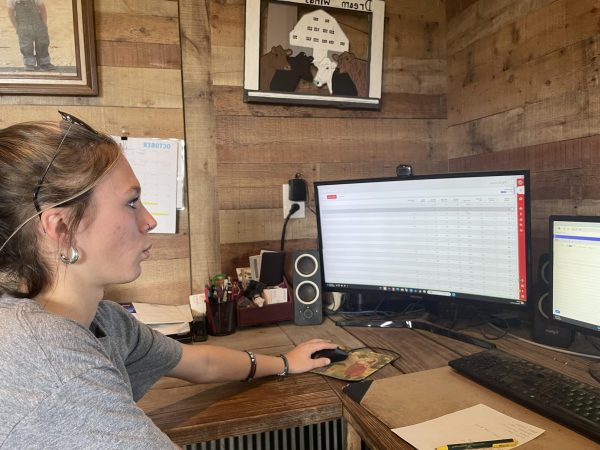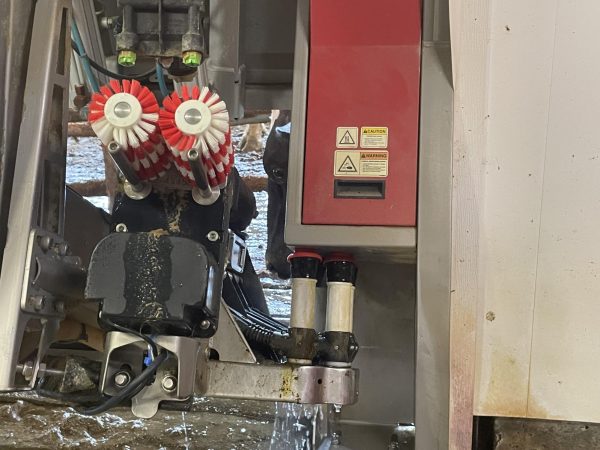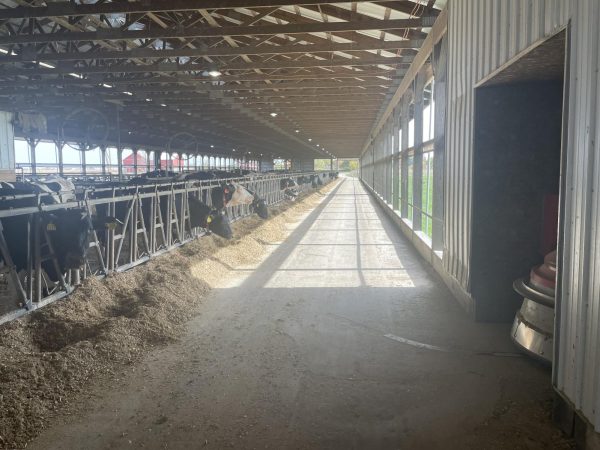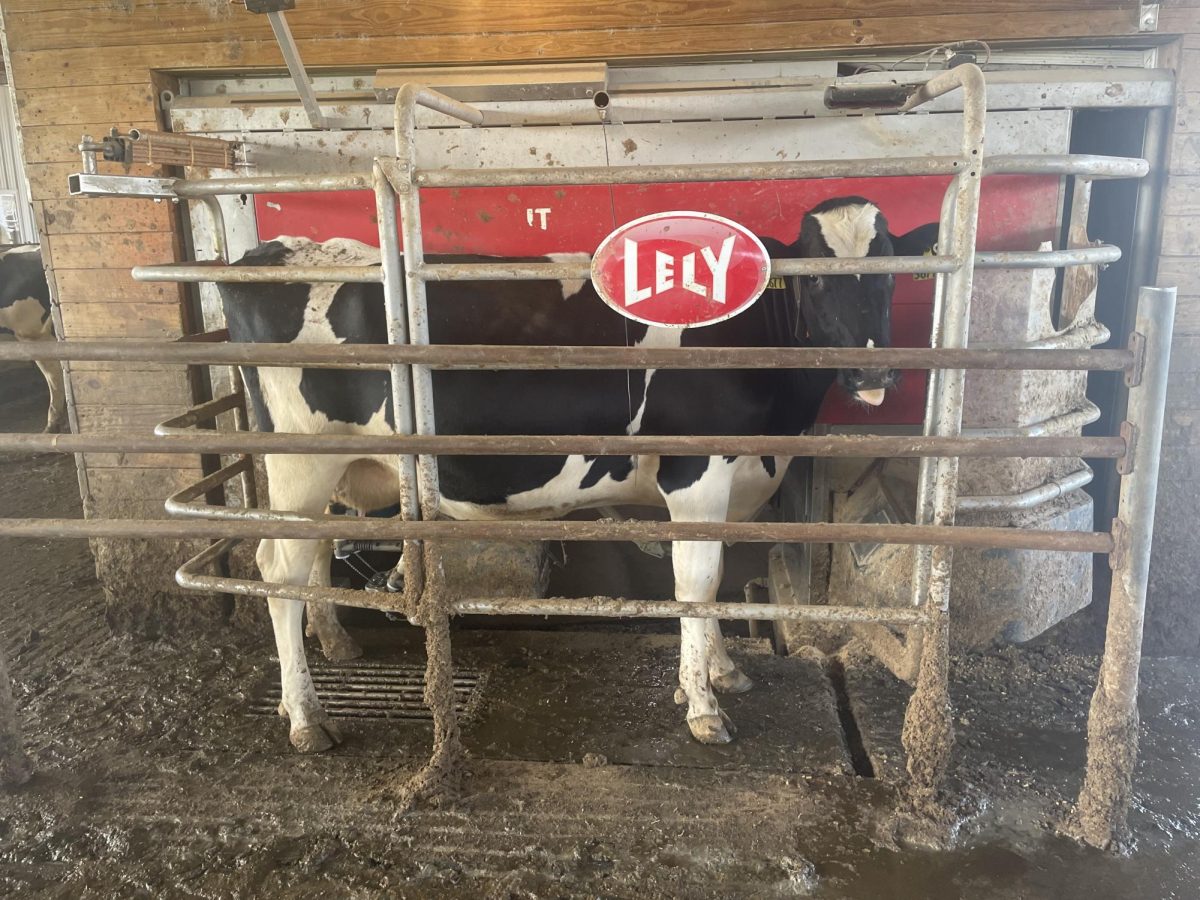Wrangling over 240 employees everyday is no small task for Kayla Klempel. Ensuring all employees are fed and hydrated for the long day of work ahead is the central part of Klempel’s job.
Oh, did I mention her employees are dairy cows?
Kayla Klempel, a senior at GHHS, works at Dream Winds Dairy, a local dairy farm. Started in 2014 in Coopersville, Michigan, they have breeds such as Holsteins, Jerseys, and Swiss. Klempel is a part of the Capstone program at Careerline Tech Center, which is how she found the job.
“They gave me a list of jobs to check out and this one is the one I liked the most,” said Klempel.
Every day, she has chores such as cleaning the robots, checking the teat chemicals, and ensuring everything runs smoothly. At the farm, they have four high-tech Lely Astronaut A4s that m

ilk cows automatically. Each cow has a collar and a Lely sensor, which allows the robot to recognize the cow and tailor the milking process to their past data, which is recorded in the Lely Horizons. The app is able to track time away from the milker, see the pounds of milk expected, and also check their health.
“Chemical teat spray comes out of the brushes on the machine and cleans the udder before the machine milks the cow,” said Klempel.
Using the brushes, the teats are cleaned more thoroughly and stimulate the nerves in the tea. After each cleaning, the brushes are disinfected to prevent cross-contamination.

Special vacuumized cups are then attached to each teat to milk. After milking, the udder is sprayed with iodine, and the cow can leave the machine.
According to the Lely official website, the success of the milking robot is based on the principle of free cow traffic.
“This means the cow is free to … be milked on her own initiative, meaning that the milking process runs stress-free guaranteeing the best results,” said the website.
These machines aren’t cheap, the milkers costing around $32,000 per unit. However, these machines ultimately save farmers money in the long run by eliminating labor costs.
“I haven’t had to hand milk here unless we are taking milk samples to check for mastitis which is nice,” said Klempel.
Bovine mastitis is an inflammation of the mammary gland caused from trauma or an infection, leading to abnormal and decreased milk production. It is typically treated

by antiboitics.
Another common disease in cows is hoof rot, which causes lameness, swelling, and reddening of the feet. If the cow can’t stand up, it can’t milk, so Dream Winds tries to prevent it as best as they can by adding foot baths with a copper sulfate mixture to the barn.
What’s next for Klempel? She got accepted into University of Wyoming and is planning on going there next fall.
“The experience I got here is going to help me for my future, going to college for business and livestock.” said Klempel.

